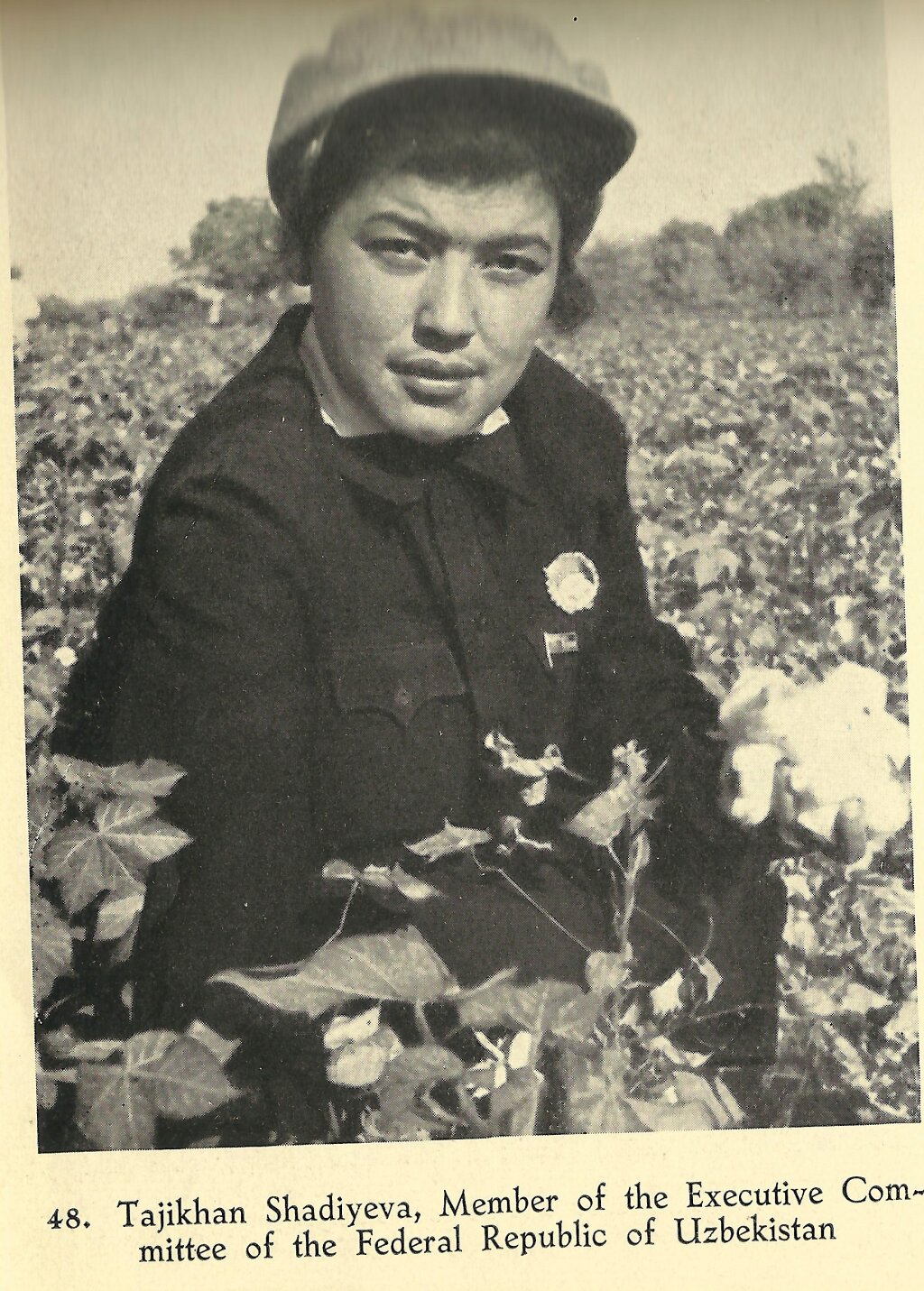Tojixon Shodieva was the biggest celebrity in 1930s Soviet Uzbekistan. Her image as a hyper-productive Stakhanovite, a courageous activist, and the survivor of a traumatic past circulated through a wide array of mass media representations. As Shodieva became ensconced in narrative, film, and poetry, she became a Socialist Realist “positive hero” par excellence. This lecture focuses on two representations of Shodieva: one a poem by Uzbekistan’s most prominent female writer, Oydin; the other a short documentary film directed by Liudmila Snezhinskaia, a director with Alexander Medvedkin’s agitational Film Train. Entangled in a dense web of intertexual and intermedial relationships, both works not only represent Shodieva, but also call into question how that representation might be received. This lecture puts forward the “state public” as a category to explain the fraught dialectic of representation and reception in Soviet Central Asia. It argues that Socialist Realism functioned as a mode for imagining and addressing a multinational, gender-inclusive Soviet public; and, at the same time, that the unpredictable dynamics of mass participation rendered that project of mass publicity inherently unstable.
Watch the event recording on YouTube here.
Claire Roosien is Assistant Professor in the Department of Slavic Languages and Literatures and a cultural historian of modern Eurasia, with a focus on mass culture and empire in the Russian Empire and Soviet Union. She received her joint PhD in History (Russia) and Near Eastern Languages and Civilizations from the University of Chicago. Her book-in-progress, Socialism Mediated: Culture, Propaganda, and the Public in Early Soviet Uzbekistan, examines how Central Asian cultural producers imagined and mobilized mass participation through state-run institutions and Socialist Realist cultural production: poetry, novels, film, newspapers, and material and visual culture, among other mediums. Drawing on published and archival sources in several Eurasian languages, she posits the category of the “state public” to describe the contested imaginaries of state control and public participation in the context of Soviet ideologies of popular sovereignty.

